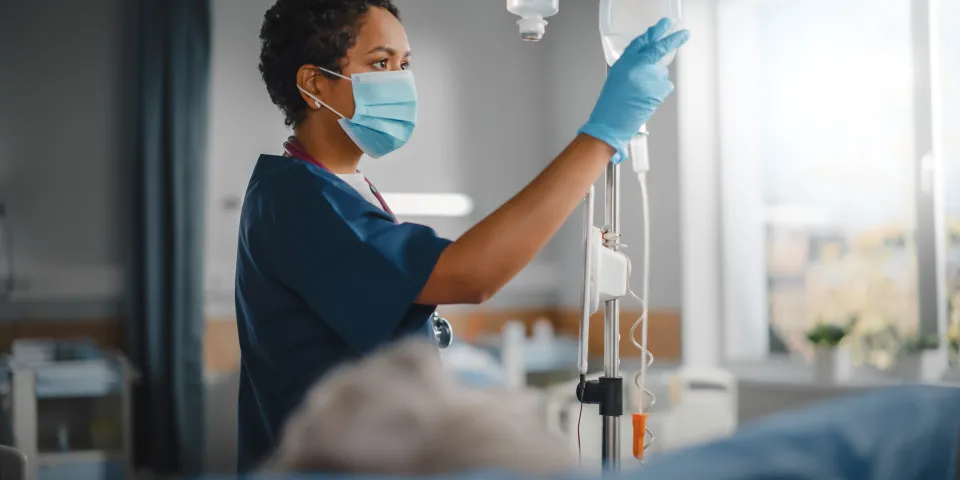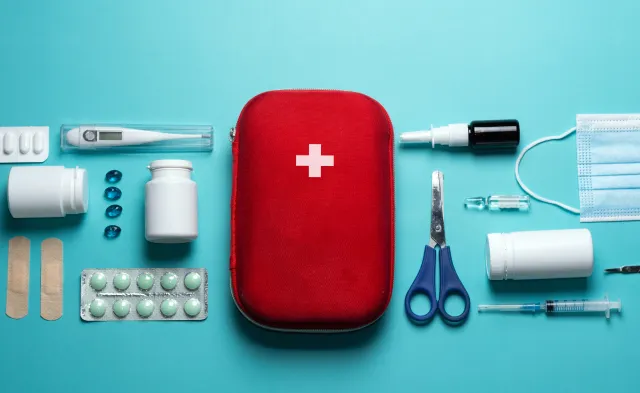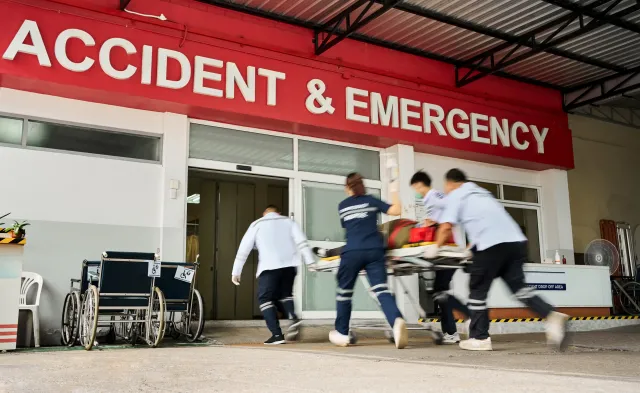Latest
How To Get the Most Out of Your Clinical Placement
Aug 26, 2022

Are you excited about clinicals? You should be! Clinicals are an opportunity to ask questions, learn from your mistakes and evolve as a healthcare professional. Clinicals also allow you to explore different specializations and gain more insight into what you’re most passionate about. You should take the time to prepare for this exciting endeavor to get the most out of your clinical experience. Catch up with these helpful tips — you’ll thank yourself later!
Start Strong, Know What to Expect
Don’t wait until the first day of clinicals to start preparing. If you’re a first-time nursing student, clinicals may seem daunting. Channel your nerves into excitement and motivation for a new chapter of your healthcare career. Clinicals usually occur during the first or second semester of nursing school and could require about 60 hours total depending on your program.
Introduce Yourself, Develop Lasting Connections
Even if you’re enrolled in an online course, you will still gain the value of hands-on experience from clinicals. Don’t be afraid to introduce yourself and make connections. You never know where your connections will take you! Familiarizing yourself with clinical professors and peers will promote growth throughout your time in school. Always be open to listening and learning from others — networking is key. Not only are you connecting with others, but you’re also strengthening your communication and collaboration skills, two traits of a highly effective nurse.
Be Confident in Your Capabilities
Like any experience, clinicals are full of ups and downs. At the end of your time at Herzing, most graduates find that you get out of the experience what you put into it. That includes carrying a positive attitude and confidence in your abilities. Confidence makes you capable of not only completing clinicals but excelling throughout your career. Allow yourself to grow from these valuable experiences and you’ll find yourself more prepared to take on the challenges of life in healthcare and to provide patients with the highest quality care possible.
Put Pen to Paper (or Finger to Keyboard)
Notetaking is an essential aspect of the learning experience and doing it in a way that works for you can be the difference between an astounding A or a common C. You should develop a note-taking process that works for you by managing how you take the information from the class.
Some common strategies for recording and remembering what you’ve been taught include:
- Select the right method for notetaking. Is a laptop your best bet? Are you old school? Do you work better with pen and paper? Do you get too distracted? Maybe recording the lecture is the way to go for you.
- Organize your notes in a way that makes sense for you. Utilize topics and subtopics, high-level concepts, and keywords to make recollection quick and easy. If you’re a notetaking pro, consider writing in shorthand. It may not make sense to anyone else, but as long as it gets you through the exam, it’s a great method to ensure you are keeping up and aren’t missing key details during class.
- Mix words with images. During notetaking, doodling is just fine if it helps to connect concepts in your mind.
- Write. Rewrite. And re-rewrite. Notetaking works but notetaking on top of notetaking will sear the knowledge into your brain. Once you get home, rewrite your notes or move them to a style that works best for your study habits — notecards, outlines, visual cues, or recordings. This will make your studying time more effective, and hopefully more enjoyable.
In the end, notetaking isn’t just about making the exam work easier, it’s teaching you how to learn. You’ll develop new skills in organization, learn how to recognize crucial information even when it’s hidden in a long lecture, and get your brain engaged in new ways. These are all skills every successful healthcare worker needs to know!
Use All of Your Available Resources
Nobody reaches their full potential without a helping hand. You are stronger when you work with people and ask for help when it is needed. Counselors, professors, preceptors and your peers can all provide a wealth of knowledge to benefit your nursing education. Herzing, like so many schools, offers support centers with resources to aid students throughout their clinical experience. Whether you’re looking for tutoring, class management, or even just someone to be a listening ear, there are plenty of campus professionals who want to help you succeed and can provide you with the resources to address most challenges you’ll face.
Herzing University has a variety of nursing programs and accreditations to prepare future healthcare workers to flourish. From enrollment to clinicals to graduation and beyond, discover how Herzing can support your pursuit of the next stage in your professional life.
Learn More About Our Nursing Programs
BLS pay estimates calculate the median annual wage for various occupations. Per the BLS the median wage for an occupation is: "The wage at which half of the workers in the occupation earned more than that amount, and half earned less. Median wage data are from the BLS Occupational Employment and Wage Statistics survey." Bureau of Labor Statistics (BLS), U.S. Department of Labor, Occupational Outlook Handbook 2024. BLS median wage estimates do not represent entry-level wages and/or salaries. Multiple factors, including prior experience, age, geographic market in which you want to work, and degree level and field, will affect career outcomes, including starting salary and earnings as an experienced employee. Herzing neither represents that its graduates will earn the median salaries calculated by BLS for a particular job nor guarantees that graduation from its program will result in a job, promotion, particular wage or salary, or other career growth.
Latest
Recent Blog Posts
Subscribe to our Newsletter
Get the latest news you need to know, from study hacks to interview tips to career advancement. Have it delivered right to your inbox biweekly.








